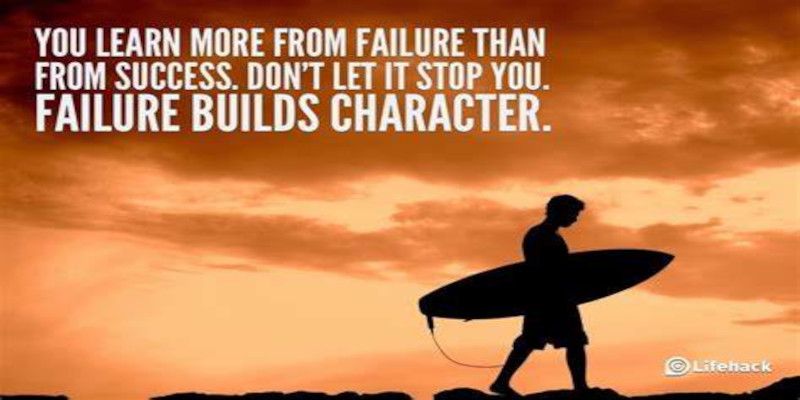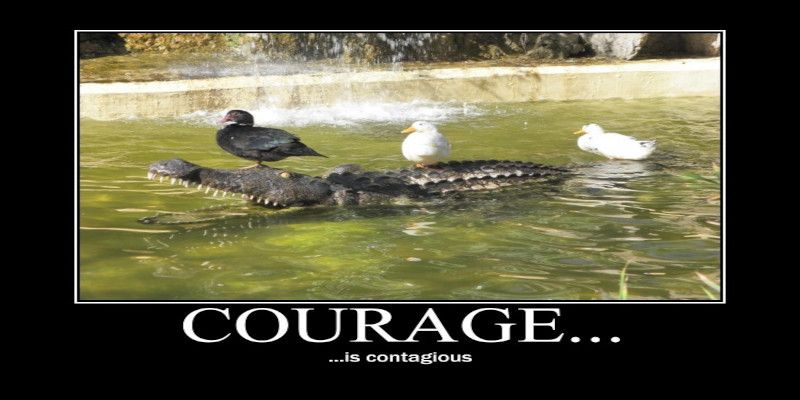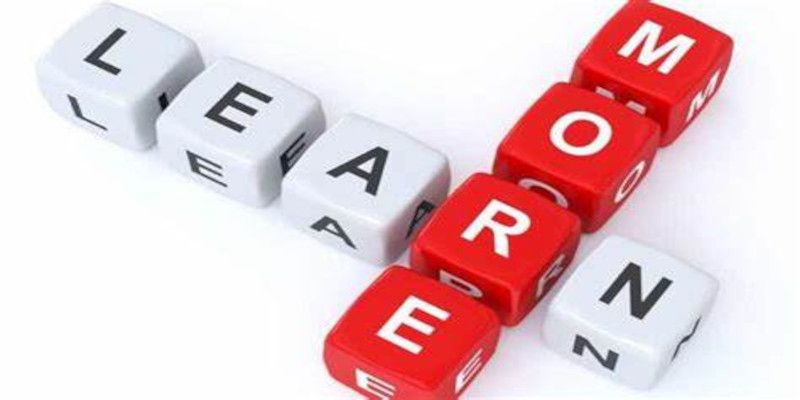Table of Contents
ToggleIn our lives, we tend to learn the most from our losses. The reason is that losing feels bad, and we typically try to prevent the things that feel negative to us from happening.
So losing provides a strong incentive to learn to forbid it from happening in the future.
On the flip side, winning feels great, and fills us with a euphoric sense of happiness due to the release of endorphins such as dopamine. Yet, we’re less inclined to learn new things when we win since, well, we’re already winning. So what’s the motivator to improve?
That’s why you either win or learn in life.

Losing is not inherently negative
I urge you to rethink most things that you know about losing.
Losing should not be seen as a negative thing, but rather as something that should be heralded.
It provides a unique opportunity to learn new things about ourselves and to become more competent.
Winners are losers who never quit
Winners are losers who never quit.
They never took these losses personally, nor the wrong way. Rather, they took their losses as learning opportunities that they desperately needed to become more competent.
The more failures you experience, the more chances you get to acquire the new abilities that you need to develop in order to become successful in the future.
Losing provides opportunity
The winners we know and look up to today used these losses as an inspiration for introspection and critical thinking to figure out what went wrong.
They analyzed what their weaknesses were/are, and ultimately what they could do to improve on their weak points.
Hard work is essential, but the right plan, and knowing how to adapt to changing times might be equally, or more vital to achieve success.
Teaches the willingness to fail

Losing can be a harsh instructor. But one of the most indispensable things it teaches us is the willingness to fail.
Being willing to fail and to be bad at something at first are requirements to become competent.
Even the most talented of us weren’t masters of their craft when they just started. That’s exactly why having the necessary amount of courage to start your journey as a complete beginner is paramount to becoming successful in your endeavors.
Informs that failure is part of life
Failure is part of life, and this is true for all of us. Sometimes we just get stuck between a rock and a hard place. And this means we have to make the best out of a bad situation.
Imagine a person that you would associate with success. You probably think that they’re born with many inherent advantages and that they were born to win, not to suffer any losses.
While they may have been blessed with many inherent advantages from birth, those folks still had to suffer many losses and setbacks. Nobody, and I mean nobody, is born perfect.
Thus, we can conclude that failure is needed to become successful.
Life is about taking the good with the bad. Without the bad, there can be no good, and vice versa.
Frequently Asked Questions (FAQ)
What does, “sometimes you win, sometimes you learn” mean?

Sometimes you win, and sometimes you learn, which means that you don’t learn as much when you win because there’s less incentive to learn new things.
But you’re much more motivated to learn when you lose. Because losing makes us feel bad and inadequate.
We’re inclined to feel negative emotions more strongly than we do negative feelings. It has been shown that our behavior is more strongly driven by the incentive to avoid losses than to pursue gains. This is what we call loss aversion.
We typically attribute losing to negative emotions such as anger, sadness, and jealousy of the winners. Naturally, these antagonistic emotions contribute to the negative association losing oftentimes has.
You either win or lose synonyms
You either win or lose has many synonyms such as:
- Sometimes you win, sometimes you learn.
- Sometimes you learn, sometimes you win.
- You never lose, you either win or learn.
- I never lose, I win, or I learn.
- I never fail, I either win or learn.
And while the wording might be slightly different, the meaning remains the same. These different wordings might, and can, be used interchangeably.
You either win or you learn quote origin
Nevertheless, others before him may have said the same thing, or at least something closely related with the same meaning.
This might not have gone viral since they weren’t as popular, or famous, or simply because it were different times without social media, internet, etc.
Why is learning from losing so hard?

Learning from losing is the smart thing to do, seeing as you typically learn more from losing than winning.
But why is it that some people tend not to learn from their losses, even when there is incentive to do so?
Fear is paralyzing
It’s because they’re paralyzed by fear.
They are so scared of losing, or making a mistake that it prevents them from undertaking challenges and taking the opportunities that are presented to them, sometimes even on a silver platter.
The irony of the whole situation is that you will only fail more in the future if you don’t take the opportunities that are presented to you because you’re afraid of losing and failure.
Because to learn new things, we must be willing to make mistakes and fail in the process.
It requires courage

So then the question becomes, what do we need to learn from our failures? The answer is courage.
Bravery is a prerequisite to the willingness to fail. And if we’re willing to fail, then we don’t mind trying challenging things that we might not succeed at.
Why is developing the willingness to fail so hard if we know that it’s necessary to be able to grow? It’s because we typically avoid the things we’re afraid of.
The logic in this behavior lies in the fact that something we avoid and run away from, can’t hurt us. Of course, this is only partially true. The things we avoid continue to hinder us in life.
Even worse, we can’t become proficient at the things we run away from. And the issues we don’t tackle immediately when they’re still small, usually grow larger and larger until they’re so colossal that they seem insurmountable.
We need to admit we’re not perfect
People like to think of themselves as being better than they truly are.
We frequently see ourselves through rose-colored glasses, which means we tend to ignore the negative aspects of ourselves, while only noticing the positive facets. This can inflate our egos, and can even create a narcissistic personality disorder as a consequence of this incorrect self-image.
But when we lose and want to learn from it, then we need to admit that we’re not perfect. We need to acknowledge the fact that others are superior to us in some facets and that we must improve our weaknesses to become winners in the future.
People like to stay in their comfort zone

Most folks like to stay in their comfort zone since that feels safe, and well known to them.
That’s also what can prevent individuals from learning new things. Learning new stuff involves acquiring new abilities, which means we have to venture somewhere we’ve never been before. Into the unknown, which quite obviously doesn’t feel safe, or known to us.
Adopting an “I never lose, I win, or I learn” mindset
What I urge everyone to do is to adopt an, “I never lose, either I win, or I learn” mindset. It’s part of what makes a winning attitude.
When I started adopting that psyche, is when my life started changing for the better.
I took more ownership of my life, I became more courageous, and more humble, and started taking more opportunities that were presented to me.
All of this allowed me to learn new things about myself, and to acquire new skills that I can use to create a better future for myself.
Final note

You either win, or you learn. That is if you decide to learn something from your losses.
Learning from losing can be challenging since it forces us to admit certain things about ourselves that we might not want to, such as admitting that we’re not perfect and that we might lack the required amount of courage.
Rather than giving losing a negative connotation, try heralding it as something positive. It provides you with the unique opportunity to learn new skills that will allow you to thrive in the future.
Call to action
Try to acquire a new, better understanding of every loss that you endure in life.
Take opportunities that are presented to you by applying the much-needed courage, and willingness to fail, and by preventing yourself from negatively attributing your losses.
Sometimes you win, and sometimes you learn. But are you brave and humble enough to lose?

1 thought on “Why you either win or learn in life”
Comments are closed.